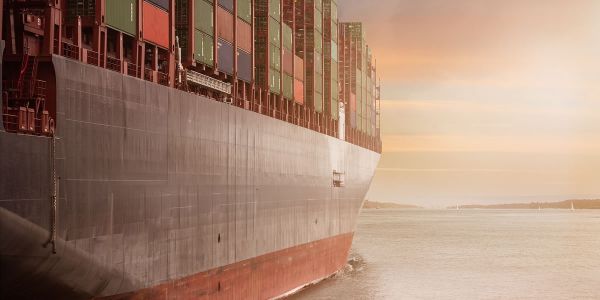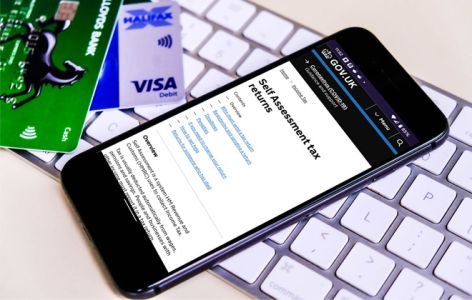- By Buckinghamshire Business First
- 11 February, 2021

Share by email
New rules for businesses that trade with Europe are here. As of 1st January 2021, now that the Brexit transition period has ended, all businesses that move goods between Great Britain and countries in the EU, or under the Northern Ireland Protocol, must follow new customs and tax rules.
HMRC can help you understand what the changes mean for your business. Below, they share the answers to some of the most frequently asked questions and provide links to where you can find more information and support.
1. Customs processes are complicated. Who can help me complete them?
Most traders find that they need specialist support to help with importing from or exporting to the EU. For instance, you might decide to use a customs intermediary.
A customs intermediary is someone who makes customs declarations for you or your business. This could be:
- a freight forwarder – a company that helps their clients move cargo globally, including supporting the customs process
- a customs agent or broker – these make sure your goods clear through customs.
If you decide to use an intermediary, make sure you approach them as soon as possible, as there is high demand for these services. You can find a list of businesses that can help here.
There are still specific actions you will need to take if you get an intermediary to help you with your customs declarations. You will:
- be responsible for paying any taxes or duties owed
- be responsible for providing details about your transactions to your chosen intermediary
- need to apply for an Economic Operator Registration and Identification (EORI) number (if you don’t already have one). An intermediary can’t apply for an EORI on your behalf and they will need this to complete your customs declarations. You can register for free here. It takes 5 to 10 minutes to apply and you will normally receive it in under a week.
For more information, you can:
- attend a live webinar on 'Trader responsibilities when using an intermediary'
- watch these short films about how a customs agent or intermediary can help you and getting someone to deal with customs for you – how freight forwarders can help.
2. My business is located in the United Kingdom and I export goods to EU customers. Can you explain how I should account for VAT?
If you sell, send or transfer goods out of the UK, you do not normally need to charge VAT on them in the UK. You can zero-rate most exports from:
- Great Britain to a destination outside the UK
- Northern Ireland to a destination outside the UK and EU.
If you incorrectly charge UK VAT on exports of goods, your customers may also have to pay VAT in the country where the goods are imported.
Different rules may apply in different countries. Therefore, it’s important that you understand the import VAT rules of each EU country that you sell to.
Find out more about exports, sending goods abroad and charging VAT.
3. I send goods from the United Kingdom to my customers in the EU. Has anything changed about how I should account for VAT?
Yes. Previously, before the end of the transition period:
- VAT was due on the goods that you sold to your EU customers. If your EU customer was not VAT registered themselves (for example, because they were a private individual) you accounted for UK VAT in the UK. If your sales to EU customers breached an annual distance selling threshold, you had to register for VAT in that EU Member State and account for EU VAT in that country.
- If your EU customer was registered for VAT in their own country, your business zero-rated the sale as a 'dispatch' and your EU customer accounted for the VAT as an 'acquisition' in their own country.
Now, following the end of the transition period:
- If you are a business subject to the Northern Ireland Protocol the above rules will still apply
- If you are a business moving goods from Great Britain to the EU, your goods should be zero-rated exports from the UK, and import VAT will be due to be collected from the EU recipient at import into the EU and subject to EU rules
- Different rules may apply in different countries – therefore, it’s important that you understand the import VAT rules of each EU country that you sell to
Find more information and guidance about the conditions for zero-rating VAT on the goods you export, and what you should do when you export goods in specific circumstances
Further help and support available
If you need more help, please take advantage of the support available now:
- Register for the free Trader Support Service if you’re moving goods between Great Britain and Northern Ireland. This free UK Government-backed service will guide you through any changes you need to make, and can complete customs declarations on your behalf. The TSS also offers a comprehensive range of education materials including online training, webinars and “how to” guides.
- Movement Assistance Scheme (MAS): Free support, including a dedicated helpline, is available for traders and businesses moving animals, plants and associated products from Great Britain to Northern Ireland. MAS also means that traders will not need to pay health certification costs, which will be met by the UK Government.
- Rules of Origin. To export tariff-free into the EU, traders must check their goods meet the Rules of Origin requirements set out in the Trade and Cooperation Agreement and have the right documentation. Read the full guidance on meeting Rules of Origin when trading with the EU.
- Attend a live webinar or watch short films about key actions for importing and exporting with the EU
- Use the Brexit checker on GOV.UK to understand HMRC processes for importing, exporting or customs relief and keep your business moving
- Call HMRC’s Customs & International Trade helpline on 0300 322 9434 for more help with importing, exporting or customs reliefs. The helpline is open from 8am to 10pm Monday to Friday and from 8am to 4pm at weekends. You can also send your questions or webchat with HMRC.
It is really important that you make sure you have taken all the necessary actions before you try to move your goods. If you don’t have the correct authorisations, contracts and agreements in place you could face delays and extra costs.
EU Exit business support homepage
Visit the Buckinghamshire Business First EU Exit business support hub for all the latest information and resources.







